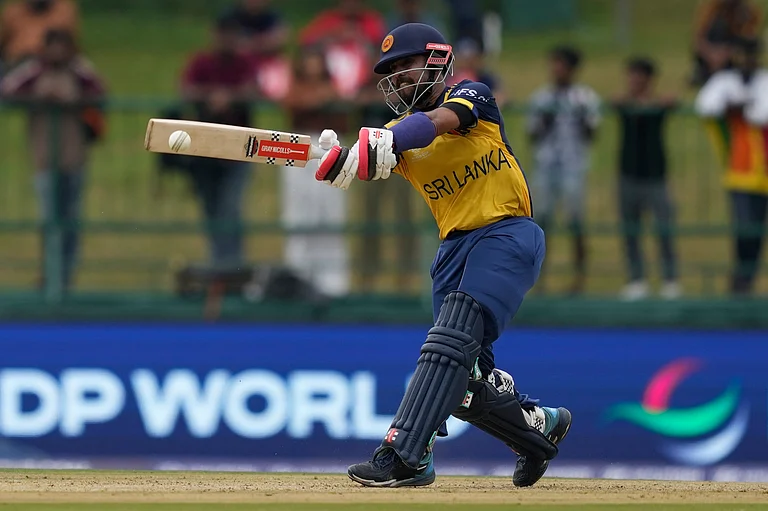Fifty years after the Yom Kippur War, ‘Golda’, the biopic on the life of the then-Israeli Prime Minister Golda Meir, was screened at the Berlin Film Festival in February for its global premiere. It was commercially released in United States in August. The Times of Israel said that its storyline was how Golda Meir had “navigated the Yom Kippur War”.
Amid bruising national disputations over judicial reforms, old wounds in Israel’s body politic are being reopened as the country is approaching the 50th anniversary of the Yom Kippur War (October 6-25, 1973). These revelations remind them how their intelligence agencies’ disputes had resulted in conflicting decision-making, leading to the loss of 2,812 Israeli lives.
The lightening Yom Kippur War started when combined Egyptian-Syrian forces attacked Israel on the ‘Sabbaths of Sabbaths’, the holiest day of the Jewish year when Jews pray for atonement. Even the military takes part in these prayers. After initial shock, Israel ferociously counter-attacked, inflicting heavy losses on the combined Egyptian and Syrian forces. The war ended with a ceasefire on October 25. Israel was clearly the victor.
Despite this commendable success, the surprise attack shocked the country which called for accountability, indicating the strength of their democracy. A judicial enquiry under Chief Justice Shimon Agranat of Israel’s Supreme Court found serious shortcomings in the decision-making leading to the war. As a result, Prime Minister Golda Meir had to resign while Defence Intelligence Chief General Eliyahu Zeria was dismissed.
On September 7, Israel’s Archives published 3,500 files on Yom Kippur War. Many were already released in 2005 under orders from High Court judge Yitzhak Engelard who had reviewed the Agranat Commission report to decide whether the report should be released. These files clearly indicated conflicting assessments. On the one hand, Eliyahu (Eli) Ziera had concluded that the war was not likely to happen till Egypt-Syria upgraded their air force. Conversely this assessment was dramatically followed by Mossad Chief Zvi Zamir’s telegram that “war was a matter of hours”.
Current Mossad Chief David Barnea also released cables, files, and photos of their star spy ‘The Angel’ on September 7 in the form of a book Some Day, When It Can Be Revealed. The title was taken from what Golda Meir had then told Zvi Zamir: “Someday, when it can be revealed, you and your team will get a prize.” ‘The Angel’ was Ashraf Marwan, son-in-law of the second Egyptian President, the legendary Gamal Abdel Nasser, who had supplied prompt intelligence on the imminence of attack. Earlier Marwan was also known as ‘Babel’ in some records as I had mentioned in my book Intelligence Over Centuries. The released files showed that Zvi Zamir had flown to London to meet Marwan after which he called his senior aide Freddy Eini in Tel Aviv about the imminence of the war. Eini informed Meir.
Agranat Commission report had resulted in drastic changes in Israel’s intelligence adjudication system: Mossad was given equal role as strategic interpreter and assessor of military situations on par with Aman, Israel’s military intelligence. It also recommended that the Ministry of Foreign Affairs should create a research and analysis wing like the US State Department’s intelligence unit to “add a third voice to the debate”. In other words, Israel, like India, started a system of competitive intelligence assessments so that no information slips between “the cracks”.
Why did Mossad reveal the ‘The Angel’ files despite Prime Minister Benjamin Netanyahu’s orders barring declassification of Mossad and Shin Beth (internal intelligence) files before 90 years, as reported by Haaretz Feb 5, 2019? Was it to settle once and for all the controversy surrounding the death of Marwan to prove that they had no role in his killing? Also, that he was not a double agent? Middle East Eye said that Barnea “denied persistent reports that Marwan was in fact a double agent secretly working for Egyptians”.
Marwan’s identity was revealed by the Israeli and Egyptian media in 2002. On June 27, 2007, Marwan fell to his death from his fifth floor apartment in London. He had shifted his residence to London after Sadat’s assassination in 1981.
Marwan’s wife Mona Nasser had persistently told the media that he was killed by Mossad. She told The Guardian on July 11, 2010 from Cairo that he had told her three times before he died: “My life is in danger. I might be killed. I have a lot of different enemies”.
Nasser also said that her husband had told her that he had no direct contact with Israel. At the same time, she learnt from some Egyptian intelligence officers that Marwan was feeding false information to Israel. After death, Marwan was treated as Egypt’s hero, although rumours that Egyptian intelligence might have killed him for betrayal were also strong.
(The writer is a former Special Secretary, Cabinet Secretariat. Views expressed are personal.)

























